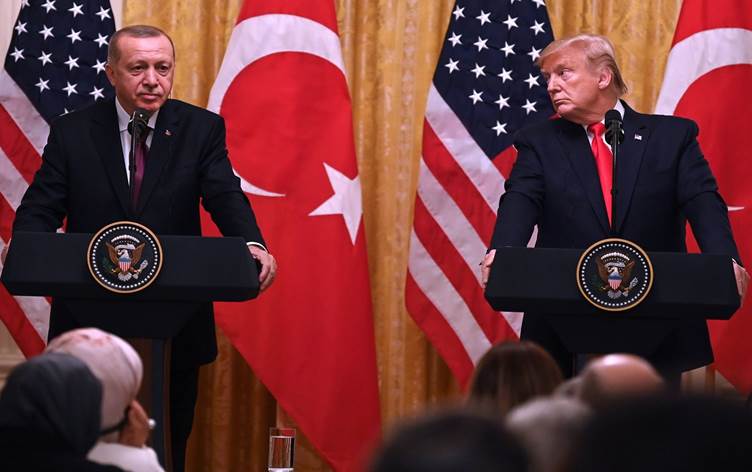ERBIL, Kurdistan Region- NATO members must speak with Turkey over threats to close NATO bases in the country following the US recognition of the Armenian genocide, US Defense Secretary Mark Esper has told reporters.
In a televised interview on December 15, Turkish President Recep Teyyip Erdogan threatened to close two bases in response to the US Senate passing a resolution recognizing the Armenian genocide.
“If necessary, we will hold discussions with all our delegations, and if necessary, we may close Incirlik [air base in southern Adana province] and Kurecik [radar station in eastern Malatya province],” he said, according to state-owned Anadolu Agency.
“It is very important for both sides that the U.S. does not take irreparable steps in our relations,” he added.
An estimated 1.5 million Armenians were killed from 1915-1917 by Ottoman forces during the final years of the empire. Turkey has continuously denied the killings as genocide.
Turkish Foreign Minister Mevlut Cavosoglu said last week that the closure of the bases was “on the table.”
However, this is the first threat of closure to come from President Erdogan.
This was the latest in a long series of spats that have badly damaged relations between the two NATO allies.
US Secretary of Defense Mark T. Esper has reacted to the threats, saying that it must discussed between NATO and Turkey.
The first I heard of [the threats] was in the paper…this is something that the alliance would have to discuss if the Turks are serious about this. They’re a sovereign nation to begin with. They have that inherent right to house or to not house NATO bases or foreign troops,” Esper told Associated Press reporters on Monday.
“I think the issue here is, is once again, what is Turkey’s direction with regard to the NATO alliance and the actions are taking on any number of issues that I’ve mentioned in the past, whether it’s the S-400, whether it’s the holding up of NATO plans for the defense of Europe or other things,” he added.
On December 11, US Senate Foreign Relations Committee approved sanctions against Turkey both for its offensive and its buying of Russian missile system S-400.
Turkey has been expelled from the F-35 stealth fighter jet program by the US due to its purchase of the Russian system.
Pentagon officials have argued that the missile system endangers F-35’s stealth capabilities, and it also bugs down NATO operability. Turkey has argued that it has had to turn to Russia due to President Barack Obama’s previous refusals to sell them missile defense systems.
Turkey also threatened to hold up NATO Defense Plans for Baltic states if fellow members did not label the Kurdish People’s Protection Units (YPG) in northern Syria as a terrorist group.
Allies rejected the calls against the YPG and remained critical of Operation Peace Spring, the Turkish incursion into Kurdish-held northern Syria, which has displaced hundreds of thousands of people since October.

